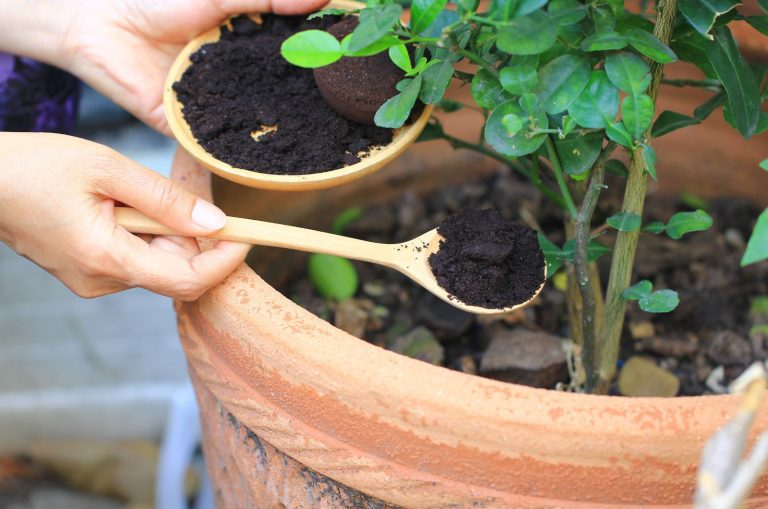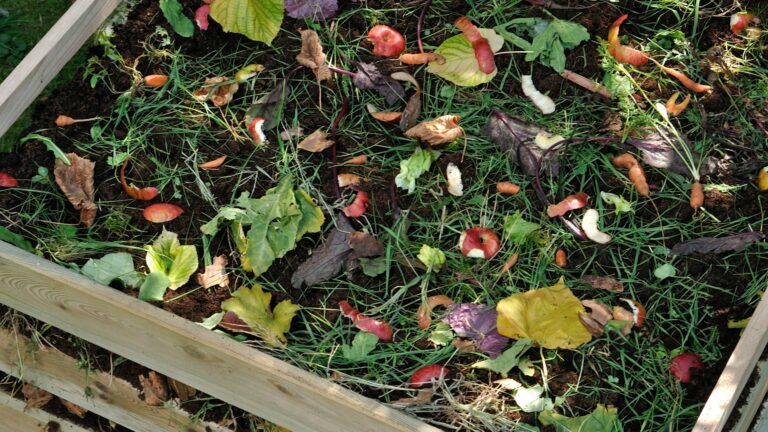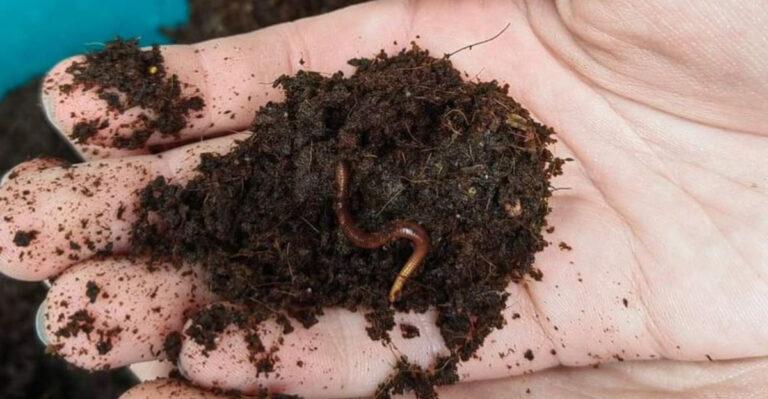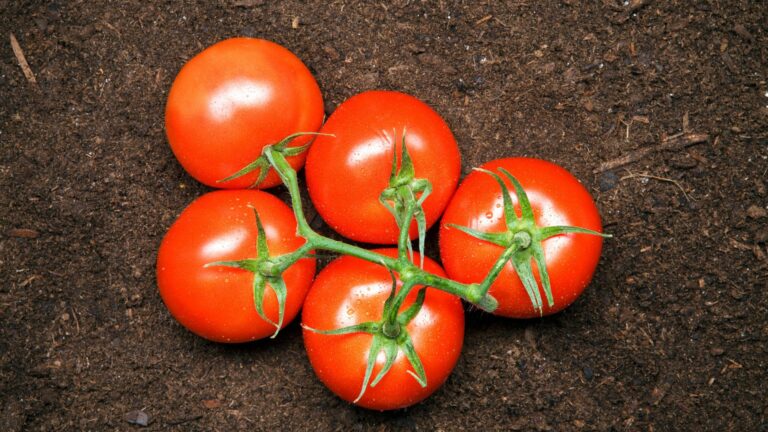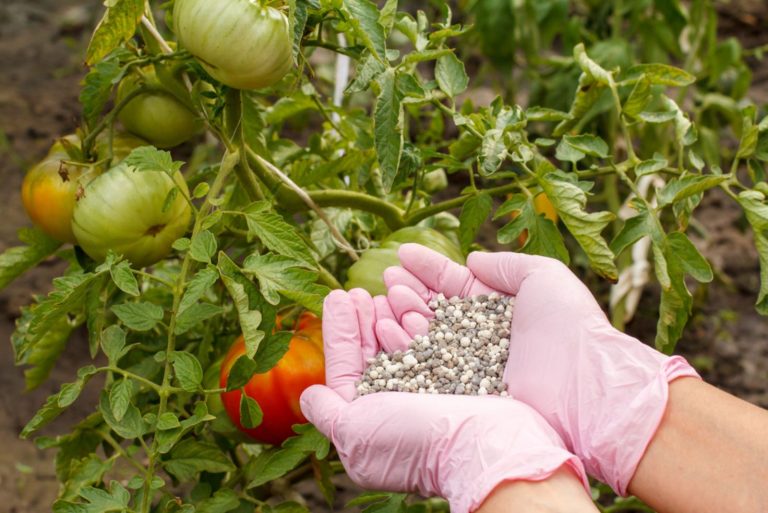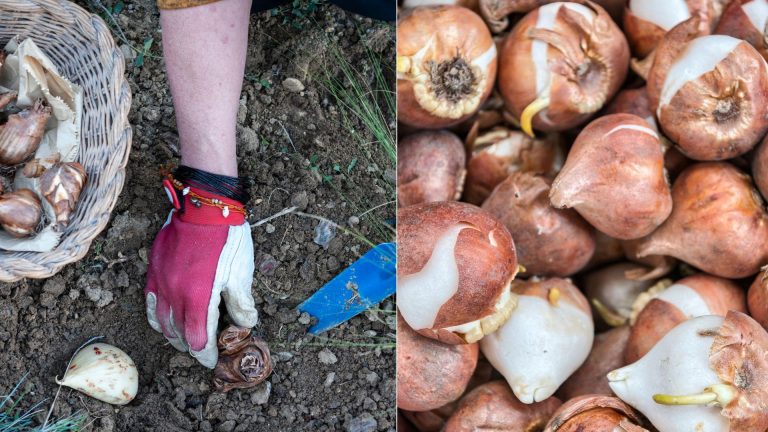Do Sunflowers Really Like Coffee Grounds And How Does It Effect Their Growth?
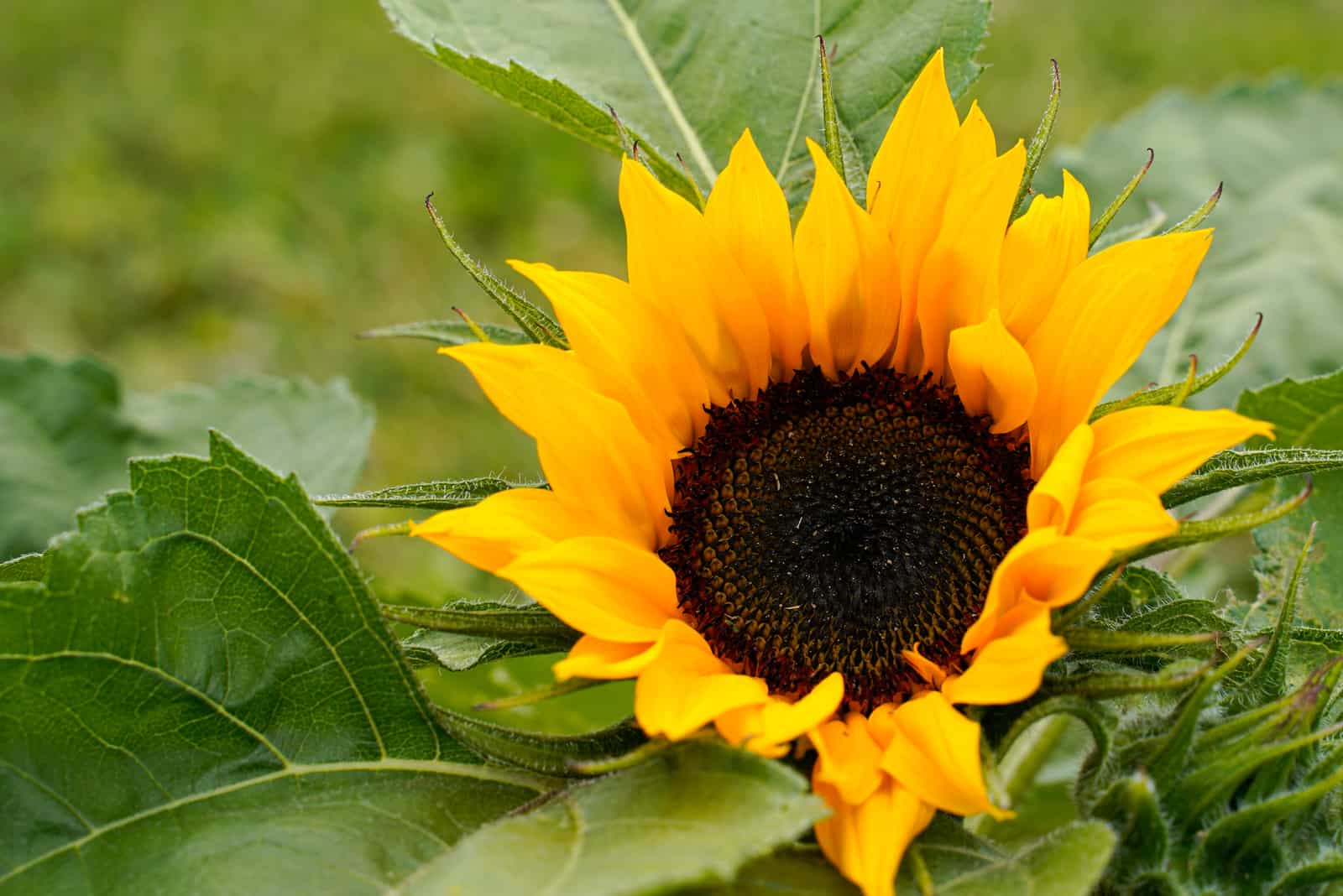
A sunflower field is one of the most serene things imaginable, and having even a solitary sunflower plant in your garden can provide the same relaxing effect.
Sunflowers are all fun and games until the time for nurturing arrives, and one of the most frequent questions we’re asked is: “Do sunflowers like coffee grounds?”
Before we answer this question, let’s learn a bit more about common sunflowers:
[table id=175 /]In addition to coffee grounds, we will show you some other fertilizers and soil-improvers you can use to really get your sunflowers thriving. The key to a tall sunflower is good fertilizer, so read on to find out the ideal option!
You will also learn some useful tips for caring for sunflowers, as well as some fun facts about sunflowers that may surprise you and put your mind at ease!
Let’s get started!
Do Sunflowers Like Coffee Grounds?
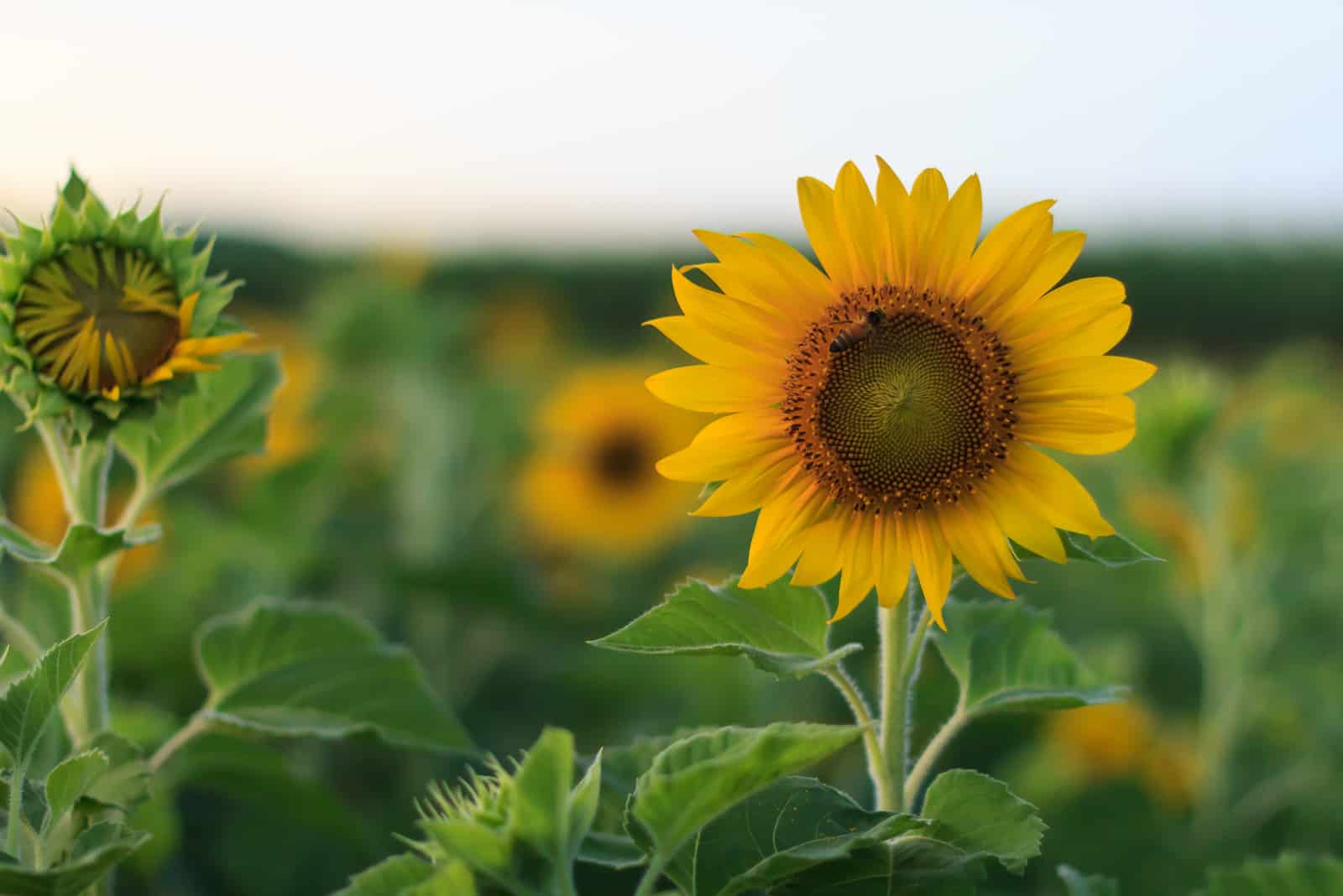
The short answer is “yes,” but there’s more to coffee grounds than meets the eye. They have a high nitrogen level, help keep pests away from your sunflowers, increase the soil’s acidity, and are an excellent food source for worms, which we all know plants love!
There’s one additional benefit that affects more than just your sunflowers. Re-using spent coffee grounds is an excellent way of recycling and kills two birds with one stone: it helps the environment and keeps your sunflowers happy!
Also, sunflowers aren’t the only plants that love coffee grounds: hydrangeas, azaleas, blueberries, carrots, and radishes will all equally thrive if you use coffee grounds in your compost.
You can read more about how to use coffee grounds and what their benefits are below, and once you see how they can help you grow your very own sunflower field, you’ll want to stop going to coffee shops and start brewing your own coffee.
How To Use Coffee Grounds

The most simple way of using coffee grounds in your flower or vegetable gardens (yes, you can do that as well) is to sprinkle them directly onto the garden soil and then rake them. Some houseplants and coffee grounds seem to get along well, too.
Coffee grounds will improve drainage and aeration, add organic matter to the soil, and help with water retention.
Liquid Coffee Ground Fertilizer
You can also create a liquid fertilizer to give your sunflowers a morning cup of coffee! You just need to mix two cups (256g) of leftover coffee grounds with five gallons (19l) of water and leave it overnight.
This fertilizer is ideal for both garden and potted sunflowers and other plants, and you can even use it as a foliar food and spray it directly onto your plants’ leaves and stems.
Coffee Ground Compost
You can also add coffee grounds to your compost pile. A good compost balances the amount of green (coffee grounds, fruit, and vegetable waste) and brown products (leaves, twigs, etc.).
Your coffee grounds will soon be transformed into a blend rich in organic material, but it’s still good to know how long it takes to make compost and when it will be ready to use.
When your compost is ready, simply work it into the soil and let it do its magic.
You can also use coffee ground compost as a mulch and spread it around your sunflower plants during their growing season.
Benefits Of Coffee Grounds For Sunflowers

There are many benefits of coffee grounds: they keep you caffeinated, help your sunflowers grow tall, keep the insects at bay, feed the worms, and more! Who would’ve thought?
In this section, we’ll examine four positive effects of coffee grounds on sunflowers, in addition to their environmental friendliness.
Used As A Fertilizer
We’ve already said that coffee grounds can be used as sunflower fertilizer, but they’re even more beneficial than you might have first thought. They contain nitrogen, phosphorus, and potassium, which makes them highly desirable for improving overall plant growth.
The NPK ratio isn’t too high, so you can safely use them around your flowering sunflowers.
Increases Soil Acidity
Coffee grounds aren’t good for every plant as they raise the acidity level of the soil, but for acid-loving plants such as sunflowers, they are perfect.
Not only do coffee grounds increase the amount of organic content in the soil, but they also make it perfect for sunflowers. The best way to raise the soil acidity is by irrigating it with a liquid coffee ground fertilizer.
Repels Insects
Coffee grounds are known to chase away insects and annoying slugs and snails that nibble on your plants, in addition to providing the necessary nutrients for your sunflower plants. Using coffee ground pest-repellent is an effective and safe way to keep your plants healthy.
The strong scent of coffee repels insects such as bees, mosquitoes, and wasps, and can even keep some pests at bay. More good news is that cats aren’t fans of coffee grounds either, so your garden won’t suffer from a sudden cat invasion!
You simply have to sprinkle the grounds around your sunflower garden, and it will act as a barrier against all sorts of insects and cats.
Food Source For Worms
If you’re into organic gardening, then coffee grounds are perfect for you. They attract worms, and also happen to be their favorite dish!
In return, earthworms aerate the soil, improve drainage, and enrich the soil with nutrients even further. They feed on the coffee grounds mixed in the soil, and the byproduct is earthworm castings that are rich in the minerals and nutrients all plants need to thrive.
What happens if you water your sunflowers with coffee?
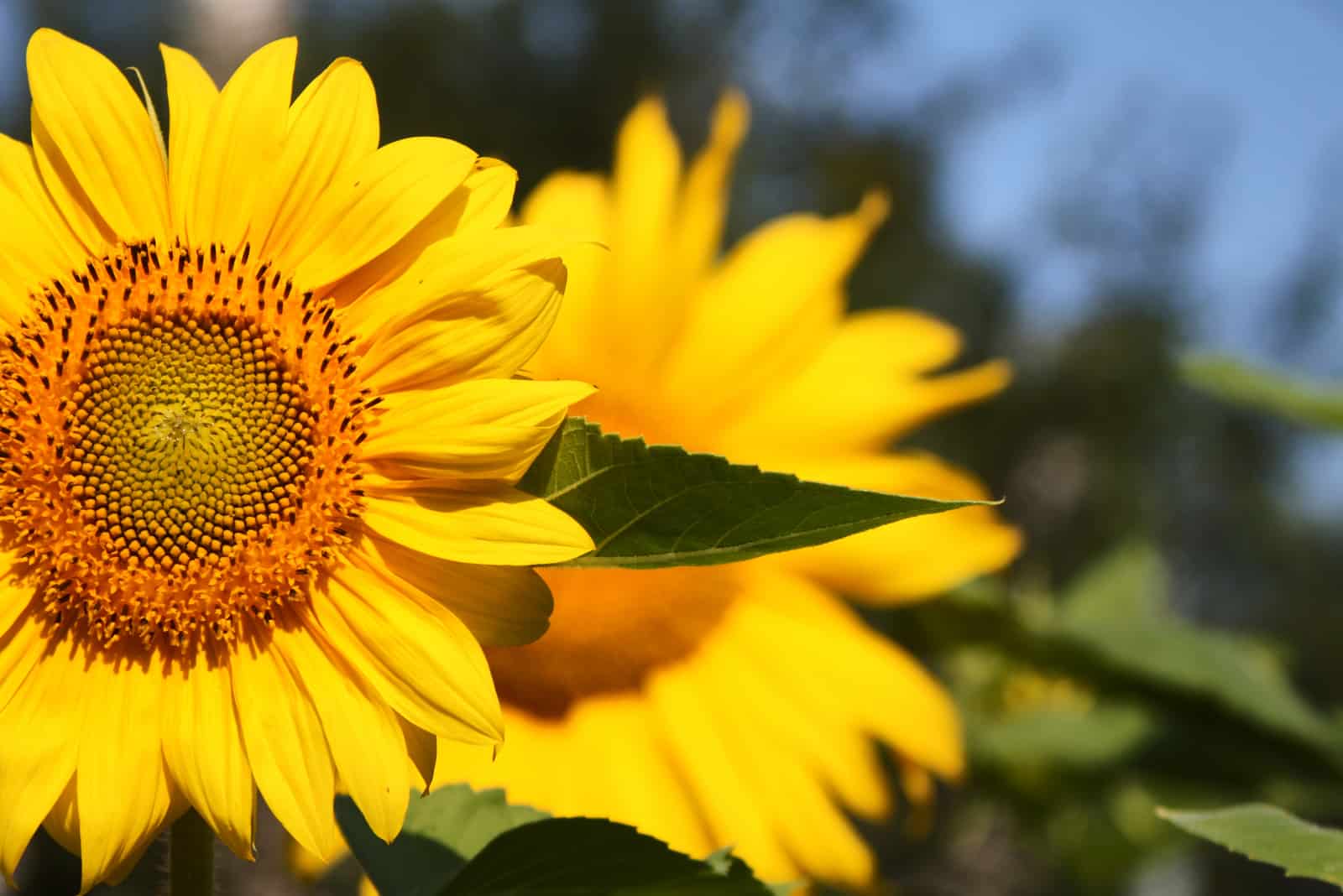
Sunflowers enjoy acidic soils, but undiluted, brewed coffee may be too much for them. Coffee is really acidic and has a pH between 5.2 and 6.9 depending on the variety and preparation technique.
However, watering your sunflowers with undiluted coffee, or watering them frequently with diluted, can increase the acidity beyond their preference and lead to wilting, yellowing of the leaves, and in severe cases, death.
Other Fertilizers For Sunflowers
Sunflowers are heavy feeders, so they can quickly deprive the soil of nutrients. You can always recycle coffee filters and add them to your compost, but if you don’t have any at hand, or you simply don’t use compost, there are other products you can try.
This section contains some other organic fertilizers that will have your sunflowers producing giant flower heads before you know it.
Some of the fertilizers (and composts) that sunflowers enjoy include fish emulsion, cow, chicken, and horse manure, compost tea, seaweed fertilizer, and mushroom compost.
All these products contain high levels of nitrogen, which is essential for vegetative growth. They also contain other important nutrients such as potassium and phosphorus.
Horse manure, for instance, has low levels of all nutrients, so you don’t have to worry about over-fertilization, and seaweed fertilizer increases the number of good microorganisms in the soil.
Another great choice for feeding your sunflowers is mushroom compost, which is well-balanced and has a 1-1-1 NPK ratio. However, there are plants that don’t like mushroom compost, such as blueberries, hydrangeas, and azaleas, so they’re probably not the best companions.
Are Eggshells Good For Sunflowers?
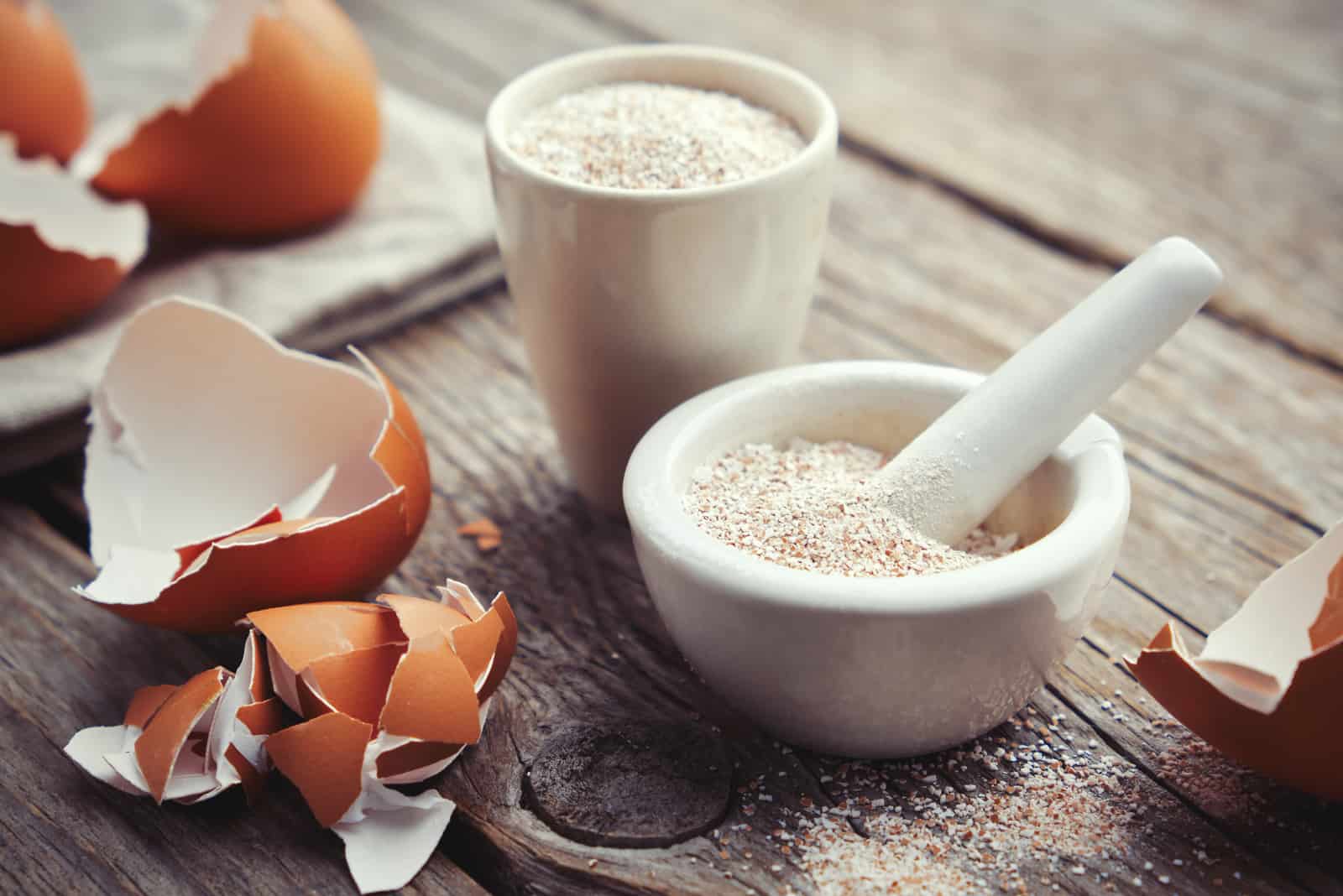
Home gardeners don’t like to throw away any recyclables, such as coffee grounds and their filters, grass clippings, and even eggshells. All these things can be used to make compost, mulch your flower and vegetable plants, and more.
The next time you make an omelet, save the eggshells because you can use them to start your sunflowers inside. You need to wash them and let them dry before any planting.
Almost every plant needs drainage holes so that the excess water doesn’t lead to root rot and other problems, so you’ll want to poke a few holes in the eggshell.
The next step is to fill them with seed starting soil, plant 2-3 sunflower seeds in the soil, and sprinkle a thin layer of soil on top of them. All that’s left is to mist them to reduce the possibility of overwatering and keep the soil moist.
Place the nursery shells in a sunny place, and within a few days the process of germination will be complete and you’ll see sunflower sprouts start to appear.
You can plant the sprouts after the danger of frost has passed. Also, don’t throw away your eggshells, simply crack them a bit and plant them into the soil as they are a great source of calcium.
Short Care Guide And Other Fun Facts
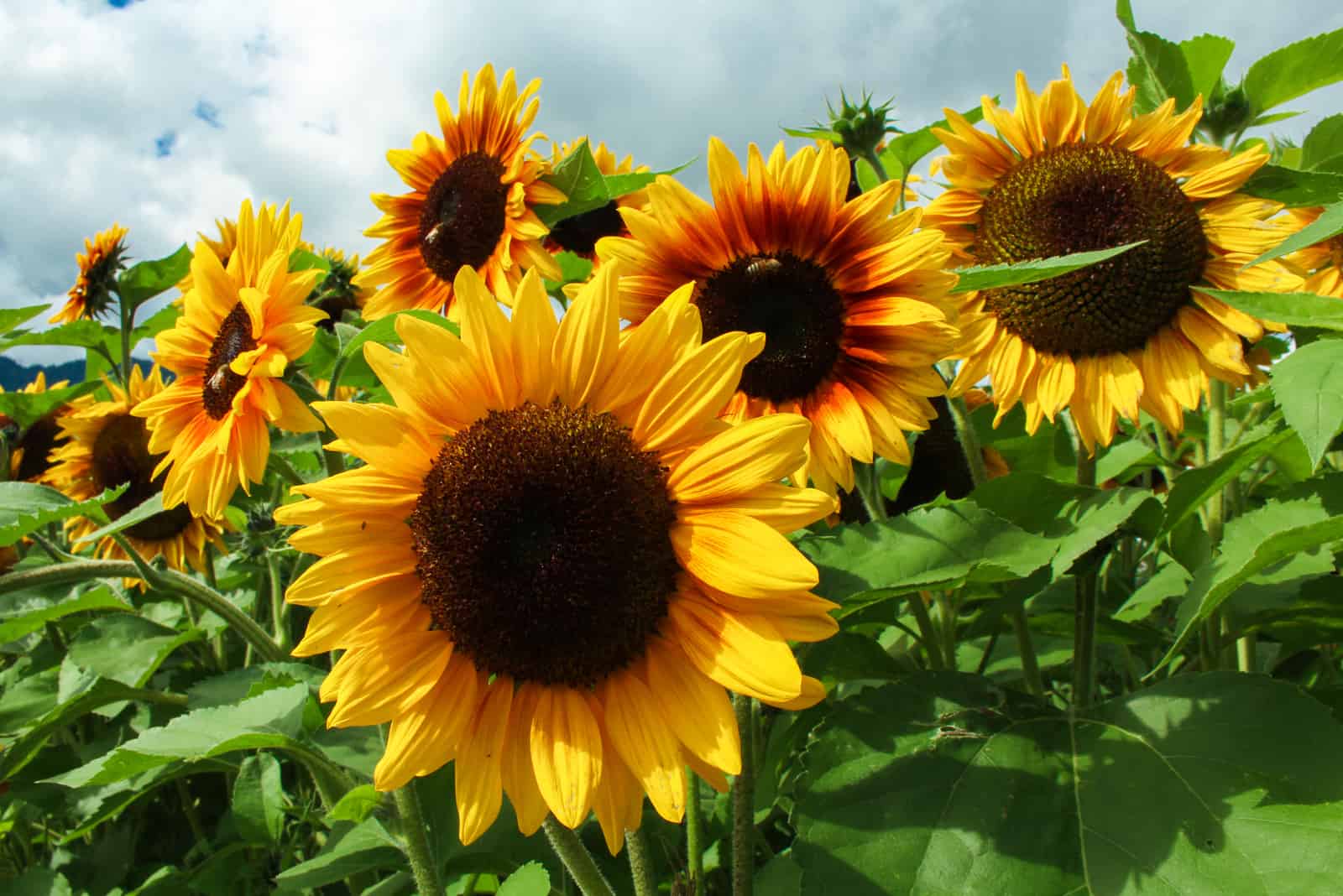
Now you know everything about fertilizing sunflowers, but there is more to their care than just feeding. Their light requirements are pretty easy to guess, but the frequency of watering, humidity, and preferred soil type are all important too.
In this section, we’ll teach you everything you need to know about sunflower care as well as some fun facts about these summer flowers.
Light Requirements
Sunflowers need full sun to grow, and even though they can get by on only six hours of sunlight, they really thrive when there’s more.
You don’t want to plant your sunflowers closely together as their leaves won’t get the desired amount of sunlight. This means they won’t be able to photosynthesize as much, so they’ll have less food and energy for plant growth.
Water And Humidity
You already know that sunflowers need regular watering in order to germinate, but that changes once they grow up. Established plants require an inch (2.5 cm) of water per week, and if you expect precipitation in the following week, there’s no need to water them.
However, if you live in a drier region you may want to water them once a week until the top six inches (15 cm) of the soil are moist. Of course, you should always check the soil before watering, and if the top 2 inches (5 cm) are dry, you can irrigate your sunflowers.
Sunflowers prefer moderate humidity levels, but they can tolerate higher humidity if the soil is well-draining. If your region is more humid, you need to ensure good air circulation, which means planting the sunflowers at some distance apart.
Temperature

The ideal temperature range for sunflowers is between 70 and 78°F (21-25°C), but they can withstand hot summer days quite well if you water them frequently.
They should be fine as long as they’re moisturized (unless the temperatures are particularly high). These plants can even handle chilly temperatures, but nothing too extreme, as long as there’s some sun that they can follow.
Soil And Fertilizer
Sunflowers prefer mildly acidic to alkaline soils with a pH level between 6.0-7.5, so don’t overdo it on the coffee. They thrive in soils rich in nutrients and organic matter, such as loam soil.
Nitrogen deficiency in the soil in which you plant your sunflowers is quite common, so you might want to add a nitrogen fertilizer every now and then. This nutrient helps your plant grow tall, but too much nitrogen can delay blooming so you don’t want to overdo it.
Organic fertilizers are the safest choice, but if you want to try out some commercial varieties, our friends tell us they are really happy with slow-release fertilizers.
You simply have to work some fertilizer into the soil during planting time, and you’re done! Your plants will have a constant dose of nutrients, and you don’t have to worry about overfertilization. These fertilizers are really concentrated, so ensure that you only use a small amount when planting.
Companion Planting
Companion planting is an excellent way of saving space, time, and energy by caring for more plants with similar requirements at the same time.
There are many good companion plants for sunflowers, such as cucumbers, tomato plants, and zucchini. However, not all plants love sunflowers as they emit a certain substance that can inhibit their growth, which is known as allelopathy.
These gorgeous flowers are actually toxic to potatoes and pole beans, so keep them as far away as you can!
Fun Facts
Did you know that the tallest sunflower ever was over 30 feet (9m) tall? We didn’t! This section will bring you some fun facts about sunflowers that will leave your jaw hanging wide open.
The next one is not just a myth; sunflowers actually track the sun during the day! This phenomenon is known as heliotropism. However, as the flower heads get bigger and heavier, they eventually lose the ability to follow the sun and stay facing east the whole time.
One flower head is made of many flowers, and each head can have up to 2000 flowers.
One sunflower may contain 1000-2000 sunflower seeds classified into two groups: oilseeds (used for making sunflower oil and bird food) and non-oilseed (used for human consumption).
Sunflower seeds have many benefits and are connected to reduced risks of high blood pressure and cholesterol and boost the immune system and energy levels.
To Sum Up
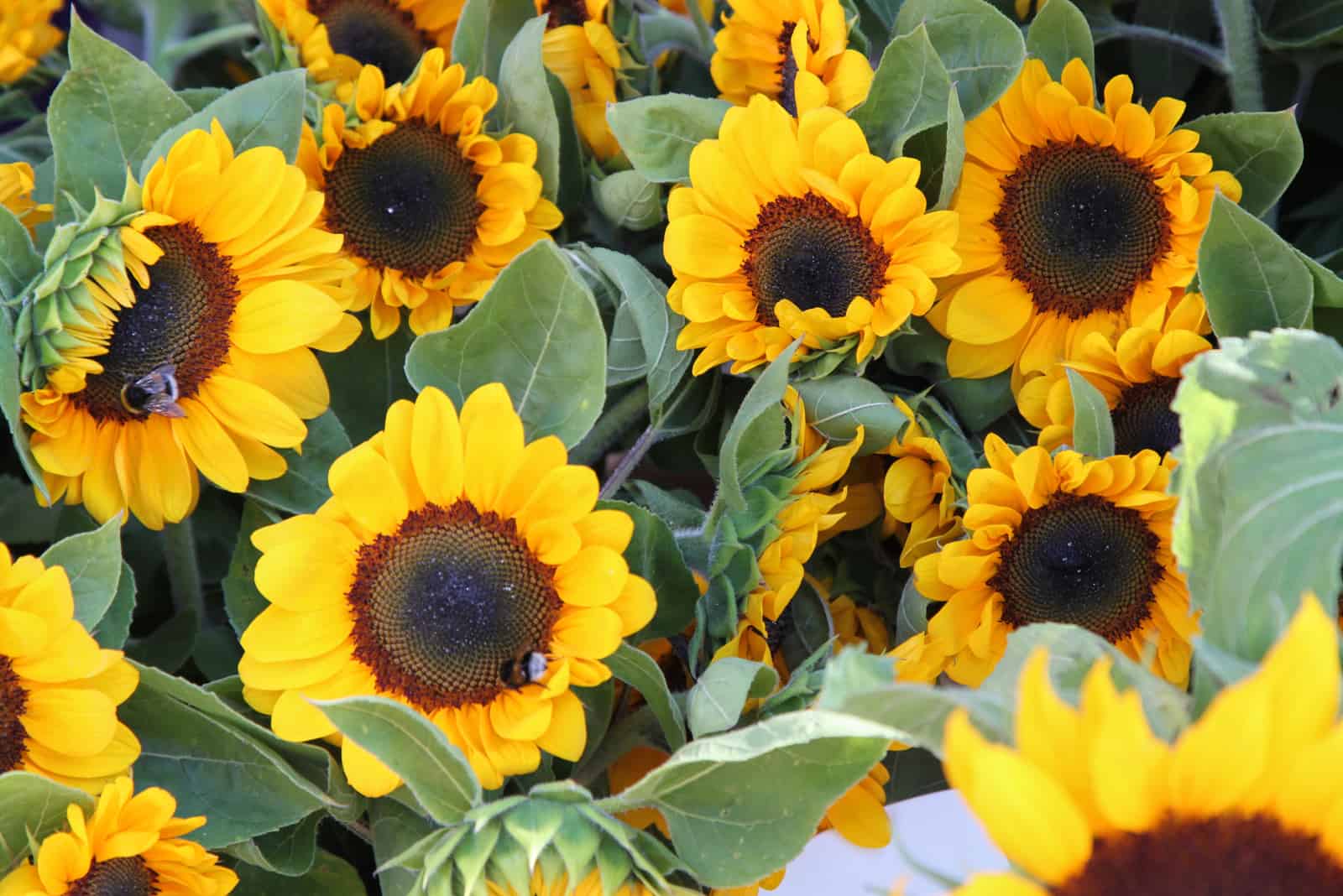
Now that you know the answer to the question “Do sunflowers like coffee grounds?” You can safely recycle those grounds and filters to give your plants a boost.
This article also brought you some other organic fertilizers that sunflowers love, as well as a short care guide to help you start your sunflower field.
Finally, we saw some fun facts about sunflowers that may come in handy, especially when you realize how healthy sunflower seeds are.
Good luck with your sunflowers, and let us know how coffee ground compost and fertilizers work for your plants.
Until next time!
Like this post? Share or pin it for later!


